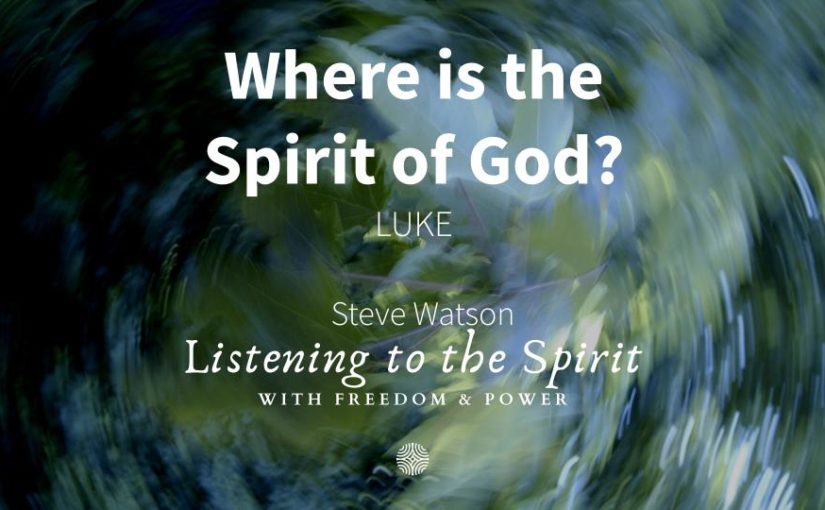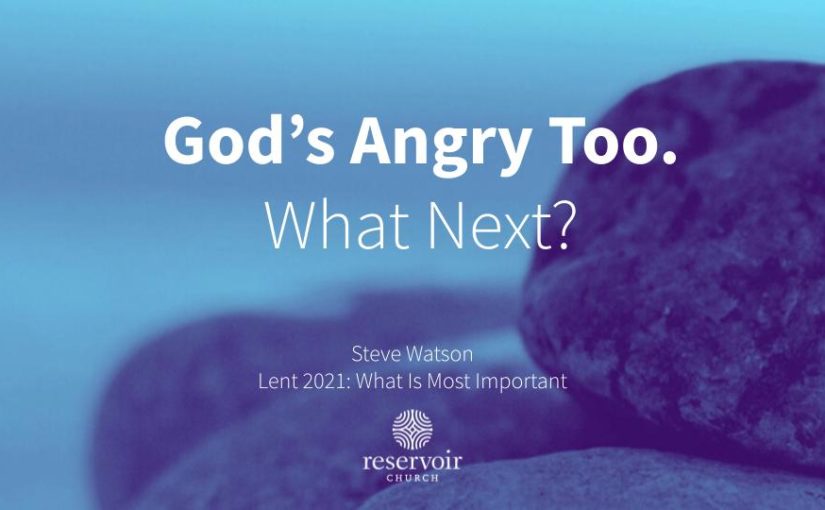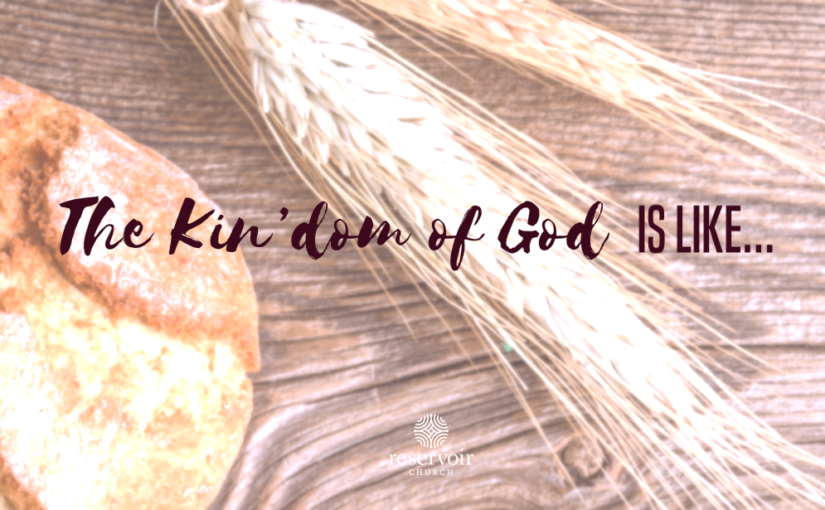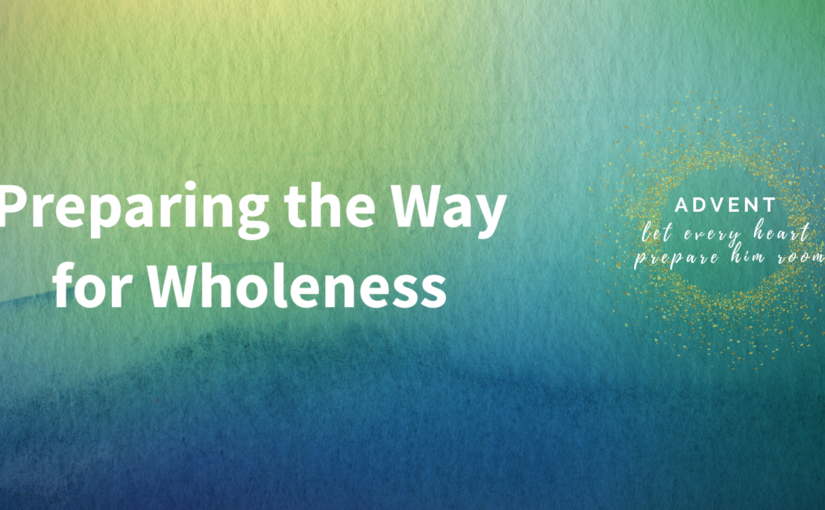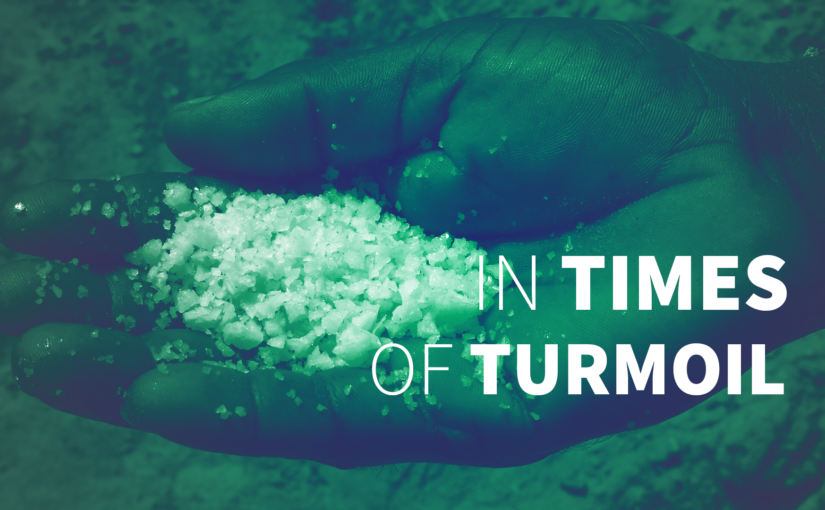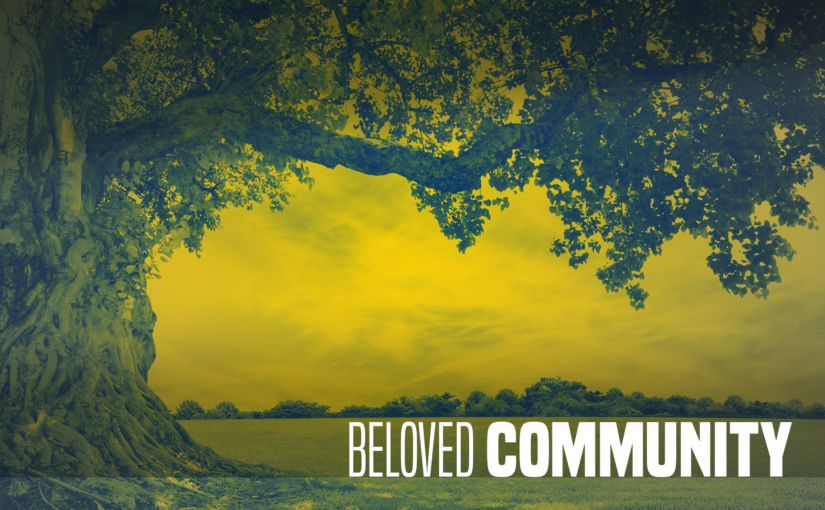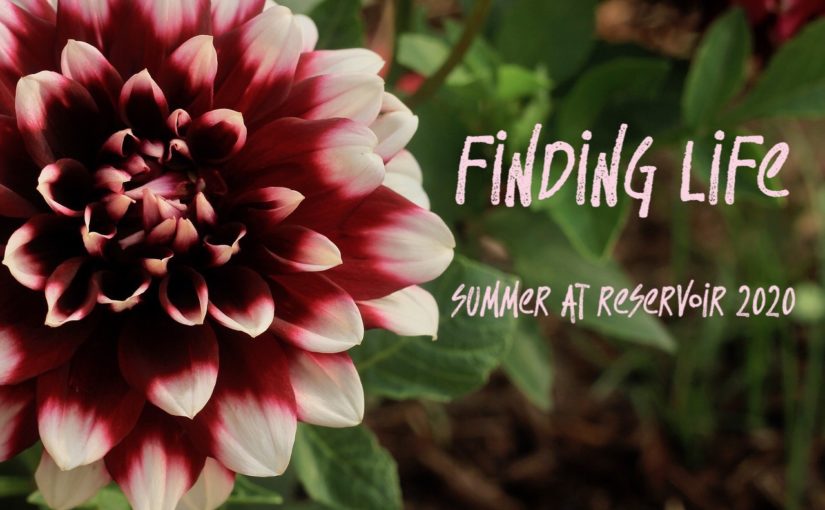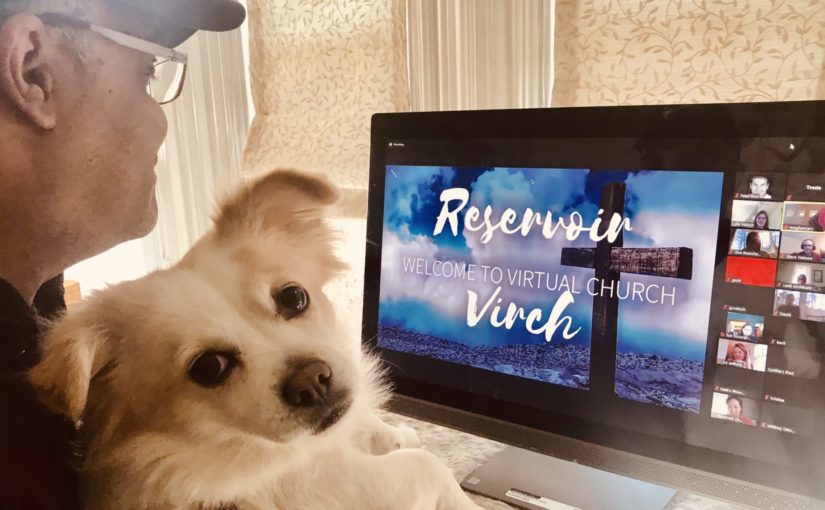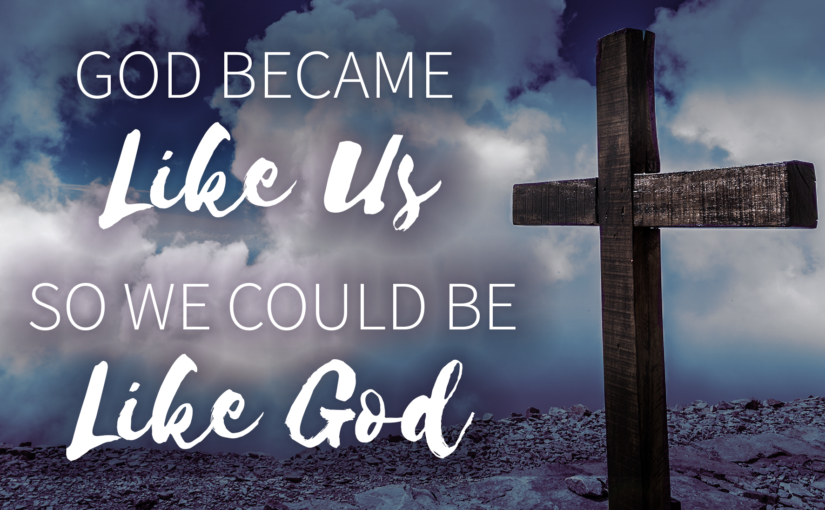For this week’s Events and Happenings, click “Download PDF.”
For this week’s spiritual practice, led by Lydia Shiu, click HERE.
From Easter through Pentecost, which is on Sunday, May 23, we’ll be exploring some of the ways we find what’s important, encounter God, and participate in God’s Beloved Community as we listen to God’s spirit, in all the places and ways God is present to us. We’re calling this series Listening to the Spirit. We’ve found over the years that listening well – listening to ourselves and our hearts and our lives, listening to the people around us, and listening to God in all the ways God speaks – is central to fulfilling our purposes for our lives, central to how we find God and wholeness and everything else good in life. We’ll end the series on May 23, partly because that’s about the right amount of time, and partly because that is Pentecost Sunday. This is a day in Jewish tradition associated with a Spring harvest festival and God’s giving of the law through Moses, but a day in Christian tradition associated with God’s Holy Spirit, God’s living presence on this earth to be with and encourage and speak to all people. And today I’m going to talk about where the Spirit of God is. Where do we go to listen to the Spirit?
But first on a personal note, the last day of this series May 23 is the next time I’ll be preaching at Reservoir, since I’m taking a month off, starting this Tuesday. Yeah, a whole month; I’m incredibly grateful. It’s the first third of a sabbatical that the church is granting me for rest and renewal. After 11 straight years of leading a school and then leading a church, I’ve got some extra time over the next three years to step back from work here and there, find some peace, and listen to the Spirit myself as I seek God’s ongoing guidance in my life and the life of this community. So a big thank you to all of you and to our pastoral team and Board for making this possible, and a big thank you to this church for being not just a beautiful and amazing community I am glad to be part of and serve, but for being much more than the contributions of any one person, myself included.
And now to today’s topic. I’m speaking on the question “Where is the Spirit of God?” And I’m inspired by Jesus’ words in the gospel of Luke, which we’ll read now.
Luke 17:20-21
20 Pharisees asked Jesus when God’s kingdom was coming. He replied, “God’s kingdom isn’t coming with signs that are easily noticed.
21 Nor will people say, ‘Look, here it is!’ or ‘There it is!’ Don’t you see? God’s kingdom is already among you.”
Jesus taught a lot about this place, or this idea, that he called the Kingdom of God. And people around Jesus were often like: what, what? They knew about kingdoms. This area was occupied territory, part of the state of Syria on the Eastern edge of the Roman Empire. So they were like: woah, Jesus – what is this kingdom you speak of? Jesus didn’t usually address these questions very directly; he told stories about what life is like when God’s love and desires carry the day on earth.
We like to call it a kindom sometimes because when you take out the “g” you get rid of the emphasis on power and patriarchy, which isn’t what Jesus’ vision are about at all. And more and more, we’ve been describing Jesus’ kindom vision as Beloved Community. Where faith and freedom are more our way in the world than fear, where relationships and societies are governed by generosity more than judgement, kindness more than contempt, and where we walk with God and others not proud and contentious but beloved, included, humble, just, and grateful.
But today I don’t want to talk about what the Beloved Community is so much as where it is. Because Jesus was asked, if you have a kindom coming, if you have a Beloved Community growing on earth, how will we find it, and Jesus is like – fine, here’s where you should look.
Another way of putting this is to say if God is still with us by God’s Spirit, where do we find it? Where do we look for God’s Spirit, so we can lean in and listen?
A psychologist and theologian I follow named Richard Beck recently wrote about this passage along these lines, acknowledging that the phrase Jesus uses that I read today as:
“God’s kingdom is already among you.”
The power of a preposition, friends. There are actually three different ways you can read the Greek of that phrase among you, and those will help point us to three places we can find God’s Spirit and listen.
The first way we can read it is “God’s kindom, God’s beloved community is in your midst.”
“In Your Midst”
Read this way, Jesus is saying:
the Spirit of God isn’t going to be any place you need to find at all, it’s right here. It’s me. Wherever I am, there the Beloved Community will grow and be. I’m right here.
Jesus is God’s presence and wisdom and help and peace, and the Spirit of God is the presence of Jesus still available to us all, unseen.
Earlier in Luke, when Jesus began his public ministry, he said this more or less, when he said:
“The Spirit of the Lord is upon me to speak good news to the poor, proclaim liberty to those in prison, recovery of sight to the blind, to liberate the oppressed, and to proclaim the year of God’s favor.”
Healing and justice and freedom are signs of the kindom, and Jesus is like:
listen to me. I can take you there. Into God’s favor.
We listen to the Spirit by listening to Jesus.
It was transformative for me when in my late teens into my twenties, I realized I could listen to the teaching of Jesus and try to really follow it. I’m not saying I did follow the teaching of Jesus in most way, my God, no, it takes a lifetime. It’s just that I learned it’s a thing you can actually dedicate yourself to, and that it’s good stuff.
I was in a group of Chrsitians that read and studied the gospels a lot, for hours. A friend gave me a book by a philosopher named Dallas Willard. It was called The Divine Conspiracy, and it argued that:
God’s hope, the conspiracy God was hatching, was for ordinary people to love and follow the teaching and practice of Jesus, listening to the Spirit of Jesus as we seek to do so, letting this form my life.
I grew up seeing and hearing about a lot of unmanaged anger and lust. Listening to the Spirit in Jesus, I learned that if I wanted to be a trustworthy and safe person, my anger and my lust would need to be transformed, so that I wouldn’t be prone to using people or attacking people. I grew up like most of us thinking love was a feeling, but I learned from listening to the Spirit in Jesus that love is a way of life – it’s steady kindness and delight and service and trust. I grew up in an all white, man’s world. But I got my start in feminism, in anti-racism, in the radical affirmation of the dignity of all people through seeing how Jesus did all that, so far ahead of his time, so far ahead of our time still. And I grew up thinking being religious made you “judgy,” gave you the right to look down on people who didn’t have their stuff together. But Jesus showed me the way to radical acceptance.
There was this time when I was a teacher, in my late twenties, when I was praying about the upcoming school year. And I was reading the words of Jesus in the gospel of John when he says:
I have come not to judge the world, but to save it.
And this light when off in my head, like what am I doing? As a teacher, I spend so much time judging my students. Even the way I grade their papers comes off providing them a much larger dose or criticism than it does anything that will really help them be better writers and more competent, confident young people. And that moment transformed how I grade English papers, of all things, what kind of comments I write and what I don’t, what kind of process I’d work in my classroom to focus on elevating my students, not judging them.
What I’m trying to say is that I found my start in the kind of adult life I want to live by listening to the Spirit in Jesus, right there in our midst. To be found every time I read the gospels, and every time I pray with Jesus and to Jesus.
I know so many of you have this experience, that when we listen to Jesus, we find better ways forward. We find life. I’ve heard many dozens, probably hundreds actually of stories in this community of people praying while reading the words of Jesus and praying to Jesus and with Jesus and finding great ways forward.
That’s why in my month off coming up, part of what I’ll be doing is reading the four gospels slowly, and taking walks alone believing that Jesus is walking with me, unseen, through the Spirit of God, and that Jesus is there to talk to when I feel like it, and to light up my mind and my heart and my path.
The Spirit of God is in our midst, whenever we give our attention to the words and life and teaching and presence of Jesus.
But there’s another way to translate this phrase. The Spirit of God is not only in our midst, it’s not only in Jesus. But the Spirit of God is also within you.
“Within You”
The Spirit of God is within you. One of the great innovations of the good news of Jesus is this radical interiority of God’s presence with us.
The prophet Ezekiel promised that God can and will take hearts of stone – cold, hard, unresponsive – and make them hearts of flesh – warm, loving, responsive, able to receive and provide nurture. In Luke, some people call this Luke’s heart theology, that God can work upon us to help us be warm to change, to welcome love and grace and practice kindness and compassion and nurture for others.
This is the “rule and reign” of God in our hearts, or what I like to call the God’s loving presence and leadership within us. Sometimes we listen to the Spirit within us through our conscience. And sometimes through the still, small voice of God, sometimes a combination of both.
So many of you have rich and many experiences of the God’s presence and leadership through God’s Spirit within you. We have a treasury of this kind of experience in our church. I am by no means the expert in the room on listening to the Spirit within us.
But I can simply say that many of the most important decisions I’ve made in my life have been based on listening to the Spirit within. Who I married. Where I live. Why I became pastor of this church. I could go on and on.
Seven years ago, our church was caught up in a controversy which thank God now seems dated and well behind us. But we were sorting out whether our LGBTQ participants in our community would have full standing and equality in our community. Again, this seems obvious to many of us now, but for most of Christian history, churches haven’t extended the same rights and freedom and blessing and dignity even to LGBTQ people as we have to everyone else. And for the most part, it’s only been in recent decades in this country that churches have started to do so.
Now I was by no means the only player in this conversation in our church. There were many gracious, courageous, thoughtful LGBTQ people and allies who participated and led our church’s discernment and change. There were pastors and leaders and members of our community – and all kinds of people outside our church who were watching us – who weighed in in different ways. But for my part, though I read dozens of books on the Christian faith, the Bible, and the experiences of LGBTQ people and Christians, I participated in hundreds of conversations with people about their experiences and convictions and yearnings and pain. I was part of many discussions with pastors and scholars and people of different sexual identities and faith experiences, and so much more.
One of the most influential moments in my whole process that got me where I am today, was an experience I had during worship a little over seven years ago, where as I was singing with our congregation, a thought popped into my mind that was so vivid, in words so clear, and felt so much like everything I know in my mind and my experience of God, that I was sure God was speaking to me. I’m still sure God was speaking to me. And the sentence I believe God said by God’s Spirit was enough. I knew that I would always henceforth be a pastor who would extend the same dignities and blessings and love and inclusion to LGBTQ people as I would to anyone else. And I’m so grateful that God helped me get here.
The Spirit of God is within you. God is with you to be present to you and guide you, my friends, whatever you are facing today.
The late medieval Spanish mystic Teresa of Avila put it this way:
that God lives within you, and since heaven is wherever God lives, you are God’s heaven.
Friends, trust that God lives within you. Ask God for help to notice how God is with you, for God to speak God’s love and leadership to you through your mind, through your desires, through your conscience. Pay attention by faith, and see what you hear.
The Spirit of God is, with Jesus, in your midst.
The Spirit of God is within you.
But also one more place.
The Spirit of God is within reach.
“Within Reach”
The Spirit of God is within reach.
This third way we can translate the words Jesus said about kindom and about the Spirit means “within your grasp”, “near to hand”, “right in front of you, wherever you are.” The Spirit of God isn’t just in Jesus, and isn’t just within us, but also just out in front of us, still to be realized, wherever you are, throughout all creation.
When I was new to the Christian faith, I was taught that Spirit of God was in Jesus – so we can listen to the Spirit when we listen to Jesus. And I was taught that the Spirit of God lives within those who love and follow Jesus – so that if we love and follow Jesus, we can listen to the Spirit of God within.
But I was also taught that outside of Jesus, and outside of baptized followers of Jesus, you might find goodness, but you weren’t going to find much of God’s Spirit. A lot of Christians are taught this, which is why Christians sometimes don’t have the greatest curiosity, humility, and compassion for how God is present and what God is doing outside of Christian people and institutions.
But over the centuries, more and more followers of Jesus have realized that God pours out God’s Spirit abundantly, in surprising people and places, and that God is present to God’s creation everywhere. The Spirit of God is also beyond you and me, but within reach.
Franciscan followers of Jesus discovered that the Bible contains wonderful words of God, but the first Word of God is creation. The natural world – the trees and oceans and plants and animals – all of creation is the first Bible, where the Spirit lives and speaks.
Jesuit followers of Jesus learned to look for God in all things. Which at their best, which hasn’t been always, has led to really great curiosity and partnership with non-Christian cultures and peoples, seeing that God is speaking there too by God’s Spirit.
Protestant missionaries in the 19th and 20th centuries were mostly caught up still in the colonial project, in which they brought good news of Jesus but also white supremacy, and American and European dominance. So sad. But small, and later increasing numbers of these missionaries, were led by God and taught and trained to notice signs of the Spirit of God’s presence in all cultures and all peoples, long before Christians or the name of Jesus were ever on the scene.
I don’t have time to share more stories on this front in my life, but in recent years, I’ve listened to the Spirit more and more out in front of me, beyond places I’d known to look before.
I’ve listened to the Spirit speaking about the reforms that religion needs to be healthy in our times from a Muslim journalist who writes about about Islam, secularism, and Jesus.
I’ve listened to the Spirit speaking about how to be a more relational person, and how to continue having Jesus shape my life, through a public health agency in India we partner with.
I’m listening to the Spirit of God speak about the struggles of the earth to survive and the power of the earth to flourish through my children, and through the mountains and the trees, and through scientists and activists mostly operating outside of religious spaces.
Turns out, where can we find God? Everywhere.
And through whom can Spirit of God speak? Absolutely everyone and everything.
This is why life with God is an invitation to listening. Spirit of God doesn’t want to be hard to find or hear. Spirit of God is living, moving, loving, luring, speaking, inviting us to all the best all the time, through many means.
Jesus invites us ask, seek, and knock. Jesus call us to radical attention – to be present; to radical curiosity – to wonder where and how God will speak today; and to radical listening – to trust that the Spirit of God is in Jesus, is within us, and is right out in front of us, everywhere we go.


